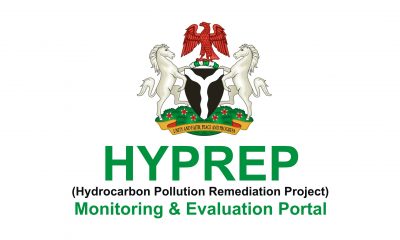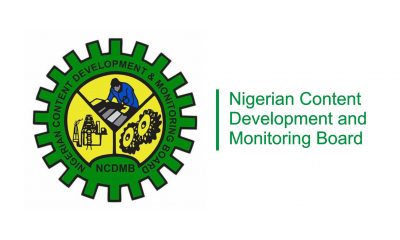Opinion
Privatising Nigeria’s Petroleum Industry (1)

The Nigerian economic
and political lexicons had never been in want of the right choice of words when government decides to intervene in the affairs of the petroleum industry. This is more so as the Petroleum Act 1969 Now Cap 10 Laws of Federation of Nigeria 2004, which supervises and regulates the industry from which the NNPC Act 1977, was derived, authorises the government to intervene.
The 1969 Petroleum Act also made NNPC a vertically integrated national oil company which means that NNPC can engage in exploration, production activities, transportation, marketing, supply and distribution of both crude oil and petroleum products ( upstream and downstream activities) .
This is one of the greatest undoing of the corporation as these activities are quite enormous for just one corporation, hence the various calls for its unbundling and restructuring. Thanks to the restructuring of 1988, which saw the creation of twelve departments out of the corporation but sadly enough, all of them were both in spirit and letter appendages of the NNPC.
For these reasons, they could not discharge their functions optimally and efficiently as the various departments were caught up by regulatory capture; each of them could not function independent of their farther and in particular, the Department of Petroleum Resources (DPR) which is industry regulator. No thanks to the non -passage of the Petroleum Industry Bill (PIB), which seeks to correct some of the challenges facing the industry.
I argue strongly that the non- passage of the PIB by the National Assembly is contributing to the regulatory uncertainty which faces the government in the petroleum sector, afortiori to the economic hardship that is currently strangulating Nigerians of all strata and the continuing environmental degradation of the Niger Delta region by oil companies operating in the region.
This is more so as poor regulatory framework in a regulated economy such as ours would lead to an unstable petroleum industry.
Conversely, a dynamic, robust and proactive regulatory benchmarks could revitalise an ailing public institution. Furthermore, a robust law could compel the government, to maintain certain level of standards of public services for its citizens in terms of the supply of petroleum products. The absence of any proactive legal regime in the industry has orchestrated regulatory and economic policy uncertainty in the sector in Nigeria
President Muhammadu Buhari-led government in its wisdom, has correctly or incorrectly intervened just like his predecessors in the affairs of the corporation, by announcing a new price band for the PM.
The reason government gave was that NNPC could not adequately supply more’ than 50% of the petroleum products requirements of the country and that the independent marketers could not, under the prevailing price regime, secure enough forex for the importation of petroleum product without recording a loss. The government also argued that the new price regime is the only way to make the product available and reliable for Nigerians.
However, it could be argued whether there is any need for govemment to be engaged in the control and management of the NNPC. The nature and extent of this control and management seems less clear but sometimes desirable.
Given the international nature of crude oil market, the capital intensive nature of the petroleum industry and the importance of petroleum as a catalyst for economic development in most countries , it would not be difficult to argue for the government’s control of this sector.
However, historically, governments are not good managers of resources. The examples in Britain and Normay could suffice here. In Britain, the control and management of British Petroleum in the UK was formerly under the supervision of the UK’s govemment but was later fully privatised, hence the
efficiency of the BP petroleum with huge presence in more than 100 countries of the world.
Norway oil was also fully owned by government but was later unbundled into two private independent companies with one saddled with policy matters while the other is engaged with investment and portfolio management.
Thus, the failure of NNPC in Nigeria to deliver efficient services after 47 years of its existence calls for a rethink of the government’s continuing direct control and management of the petroleum industry, in any guise, including the fixing of prices of products. This call has become all time imperative.
It has been restated overtime that to correct the market failures in the petroleum sector, the best govemment could do is to set out enabling environment, ensures stable legal, political and social environment for private partners to engage in the development of petroleum resources; leaving the industry to fix prices based on economic forces of demand and supply, while the government maintains some form of control through firm regulations and fiscal policies.’
Dr Dike is a senior lecturer, Rivers State University of Science and Technology, Port Harcourt.
Samuel C. Dike
Opinion
Why Reduce Cut-Off Mark for C.O.E ?
Opinion
Welcome! Worthy Future For R/S
Opinion
Restoring Order, Delivering Good Governance
The political atmosphere in Rivers State has been anything but calm in 2025. Yet, a rare moment of unity was witnessed on Saturday, June 28, when Governor Siminalayi Fubara and Minister of the Federal Capital Territory, Chief Nyesom Wike, appeared side by side at the funeral of Elder Temple Omezurike Onuoha, Wike’s late uncle. What could have passed for a routine condolence visit evolved into a significant political statement—a symbolic show of reconciliation in a state bruised by deep political strife.
The funeral, attended by dignitaries from across the nation, was more than a moment of shared grief. It became the public reflection of a private peace accord reached earlier at the Presidential Villa in Abuja. There, President Bola Ahmed Tinubu brought together Governor Fubara, Minister Wike, the suspended Speaker of the Rivers State House of Assembly, Martin Amaewhule, and other lawmakers to chart a new path forward.
For Rivers people, that truce is a beacon of hope. But they are not content with photo opportunities and promises. What they demand now is the immediate lifting of the state of emergency declared in March 2025, and the unconditional reinstatement of Governor Fubara, Deputy Governor Dr. Ngozi Odu, and all suspended lawmakers. They insist on the restoration of their democratic mandate.
President Tinubu’s decision to suspend the entire structure of Rivers State’s elected leadership and appoint a sole administrator was a drastic response to a deepening political crisis. While it may have prevented a complete breakdown in governance, it also robbed the people of their voice. That silence must now end.
The administrator, retired naval chief Ibok-Ette Ibas, has managed a caretaker role. But Rivers State cannot thrive under unelected stewardship. Democracy must return—not partially, not symbolically, but fully. President Tinubu has to ensure that the people’s will, expressed through the ballot, is restored in word and deed.
Governor Fubara, who will complete his six-month suspension by September, was elected to serve the people of Rivers, not to be sidelined by political intrigues. His return should not be ceremonial. It should come with the full powers and authority vested in him by the constitution and the mandate of Rivers citizens.
The people’s frustration is understandable. At the heart of the political crisis was a power tussle between loyalists of Fubara and those of Wike. Institutions, particularly the State House of Assembly, became battlegrounds. Attempts were made to impeach Fubara. The situation deteriorated into a full-blown crisis, and governance was nearly brought to its knees.
But the tide must now turn. With the Senate’s approval of a record ?1.485 trillion budget for Rivers State for 2025, a new opportunity has emerged. This budget is not just a fiscal document—it is a blueprint for transformation, allocating ?1.077 trillion for capital projects alone. Yet, without the governor’s reinstatement, its execution remains in doubt.
It is Governor Fubara, and only him, who possesses the people’s mandate to execute this ambitious budget. It is time for him to return to duty with vigor, responsibility, and a renewed sense of urgency. The people expect delivery—on roads, hospitals, schools, and job creation.
Rivers civil servants, recovering from neglect and under appreciation, should also continue to be a top priority. Fubara should continue to ensure timely payment of salaries, address pension issues, and create a more effective, motivated public workforce. This is how governance becomes real in people’s lives.
The “Rivers First” mantra with which Fubara campaigned is now being tested. That slogan should become policy. It must inform every appointment, every contract, every budget decision, and every reform. It must reflect the needs and aspirations of the ordinary Rivers person—not political patrons or vested interests.
Beyond infrastructure and administration, political healing is essential. Governor Fubara and Minister Wike must go beyond temporary peace. They should actively unite their camps and followers to form one strong political family. The future of Rivers cannot be built on division.
Political appointments, both at the Federal and State levels, must reflect a spirit of fairness, tolerance, and inclusivity. The days of political vendettas and exclusive lists must end. Every ethnic group, every gender, and every generation must feel included in the new Rivers project.
Rivers is too diverse to be governed by one faction. Lasting peace can only be built on concessions, maturity, and equity. The people are watching to see if the peace deal will lead to deeper understanding or simply paper over cracks in an already fragile political arrangement.
Wike, now a national figure as Minister of the FCT, has a responsibility to rise above the local fray and support the development of Rivers State. His influence should bring federal attention and investment to the state, not political interference or division.
Likewise, Fubara should lead with restraint, humility, and a focus on service delivery. His return should not be marked by revenge or political purges but by inclusive leadership that welcomes even former adversaries into the process of rebuilding the state.
“The people are no longer interested in power struggles. They want light in their streets, drugs in their hospitals, teachers in their classrooms, and jobs for their children. The politics of ego and entitlement have to give way to governance with purpose.
The appearance of both leaders at the funeral was a glimpse of what unity could look like. That moment should now evolve into a movement-one that prioritizes Rivers State over every personal ambition. Let it be the beginning of true reconciliation and progress.
As September draws near, the Federal government should act decisively to end the state of emergency and reinstate all suspended officials. Rivers State must return to constitutional order and normal democratic processes. This is the minimum requirement of good governance.
The crisis in Rivers has dragged on for too long. The truce is a step forward, but much more is needed. Reinstating Governor Fubara, implementing the ?1.485 trillion budget, and uniting political factions are now the urgent tasks ahead. Rivers people have suffered enough. It is time to restore leadership, rebuild trust, and finally put Rivers first.
By: Amieyeofori Ibim
Amieyeofori Ibim is former Editor of The Tide Newspapers, political analyst and public affairs commentator
-
Politics13 hours ago
Natasha’s Counsel Writes Senate Over Court Judgment
-
Nation12 hours ago
NIPR Practitioners Urge To Go Beyond Traditional Media Relations To Strategic Leadership Functions
-
Politics13 hours ago
Bayelsa APC Hails Late Buhari As Change Agent In Nigerian Politics
-
News10 hours ago
South-South contributes N34trn to Nigeria’s economy in 2024 – Institute
-
Niger Delta12 hours ago
Police Rescue Kidnap Victim, Recover Pistol In A’Ibom
-

 Politics12 hours ago
Politics12 hours agoINEC Trains Political Parties Officials On ICNP Use Ahead By-Elections
-

 Business13 hours ago
Business13 hours agoReplace Nipa Palms With Mangroove In Ogoni, Group Urges FG, HYPREP
-

 Business10 hours ago
Business10 hours agoNCDMB, Dangote Refinery Unveil JTC On Deepening Local Content

